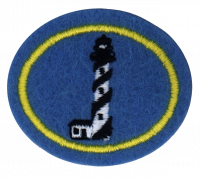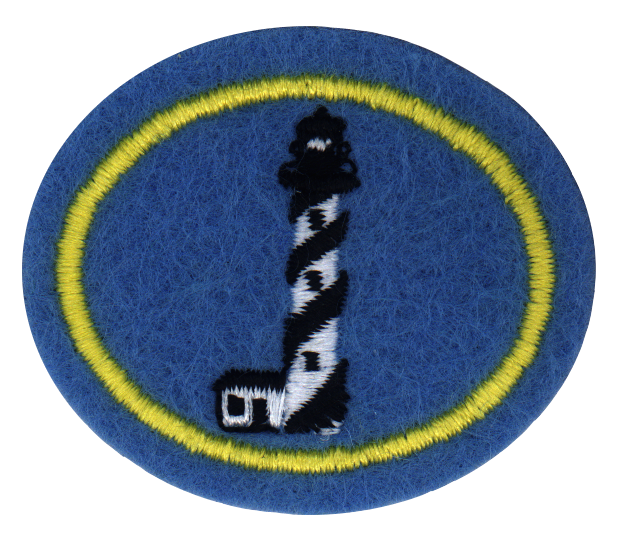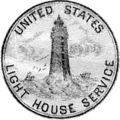Difference between revisions of "AY Honors/Lighthouses/Answer Key/es"
(Created page with "</noinclude> <!-- 11. Realizar una de las siguientes actividades: -->") |
(Created page with "Category:Adventist Youth Honors Answer Book/es <noinclude>") |
||
| Line 272: | Line 272: | ||
</div> | </div> | ||
| − | + | [[Category:Adventist Youth Honors Answer Book/es]] | |
| − | + | <noinclude></noinclude> | |
| − | [[Category:Adventist Youth Honors Answer Book | ||
| − | <noinclude | ||
| − | |||
{{CloseReq}} <!-- 12 --> | {{CloseReq}} <!-- 12 --> | ||
{{CloseHonorPage}} | {{CloseHonorPage}} | ||
Revision as of 17:30, 29 April 2021
1
1a
1b
1c
1d
1e
2
3
4
Not all lighthouses are located along ocean shores. Many are also located along major rivers and lake shores including the Great Lakes between Canada and the USA. Michigan has more lighthouses than any other US state (114).
5
In the United States and in Canada, the Coast Guard is responsible for the lighthouse service. Other lighthouse services may be found by visiting The International Association of Marine Aids and Lighthouse Authorities.
- Historical Notes (United States):
- 1852 - the United States Lighthouse Board created as an agency of the US Federal Government to be responsible for the upkeep and maintenance of all lighthouses in the United States.
- 1886 to 1902 - the Statue of Liberty functioned as a lighthouse.
- 1910 - the United States Lighthouse Service (also known as the Bureau of Lighthouses) succeeded the Lighthouse Board.
- 1939 - the US Lighthouse Service merged with the United States Coast Guard, which now maintains and operates all US Lighthouses and Lightships.
6
7
Foghorns are a navigation aid for mariners. In foggy conditions, when visual navigation aids such as lighthouses are obscured by the weather, fog horns provide an audible warning of rocks, headlands, or other dangers to shipping.
Lighthouses are often built near shipping hazards such as rocks. It often becomes too foggy to see a lighthouse at a safe distance from these hazards, so an audible signal is needed instead.
The sound produced by a foghorn is a very deep pitch, due to the fact that deep sounds are audible to human ears at a greater distance than higher pitched ones. It is also very loud so ships a considerable distance away can heed its warning. Height above sea level is another factor that determines the distance at which a foghorn can be heard. Some foghorns can be heard up to six miles (9.6 km) away.
8
8a
In all of these cases, the lights are there as an aid to seeing. Sometimes the light is so we can see physically, and sometimes so we can see spiritually.
The instances here are limited to the plural noun "lights" and do not include the singular form "light" or the use of light (or lights) as a verb. You may wish to expand the search to include those.
8b
8c
Otra vez Jesús les habló, diciendo: —Yo soy la luz del mundo; el que me sigue no andará en tinieblas, sino que tendrá la luz de la vida.
9
There are various forms of poetry, including traditional rhyming poems or non-rhyming ones. Haiku is a form of Japanese poetry containing three lines: the first line has five syllables, the second has seven, and the third has five. The Bible is full of poetry as well, though it is in a form unfamiliar to most English speakers. Biblical poetry repeats an idea using different words. Consider the full text of Psalm 136:7-9 (NKJV):
- 7 al que hizo las grandes lumbreras,
- porque para siempre es su misericordia:
- 8 el sol para que señoree en el día,
- porque para siempre es su misericordia;
- 9 la luna y las estrellas para que señoreen en la noche,
- porque para siempre es su misericordia.
Notice how the first line speaks of the great lights, and is followed by a verse meaning the same thing, but with different detail. Also notice how "For His mercy endures forever" is repeated between each expression of the idea.
Consider this quote: “I can think of no other edifice constructed by man as altruistic as a lighthouse. They were built only to serve.” George Bernard Shaw.
You might look into the history of lighthouses. The Romans built many lighthouses. The lights were often extinguished for they might attract Vikings. Search for stories like this one http://www.economist.com/node/12792727 and then put your own version together. Have fun with this.
10
| Cylindrical | |
|---|---|
|
Description: A cylindrical lighthouse is round, having close to the same diameter at the top as at the bottom.
|
 |
| Skeletal | |
|---|---|
|
Description: A skeletal lighthouse has a base made of steel beams and posts rather than being composed of solid walls.
|
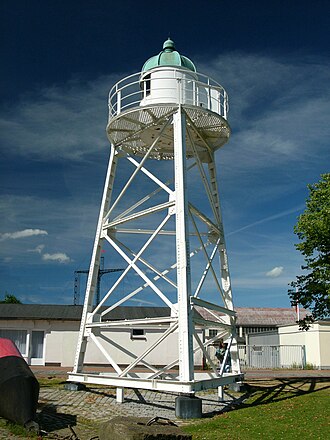 |
| Sparkplug | |
|---|---|
|
Description: A sparkplug lighthouse is short, squat, and round, like the sparkplug in an engine.
|
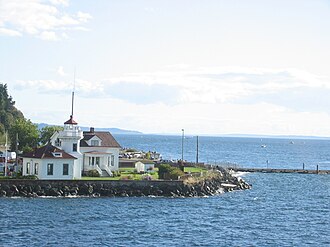 |
11
- a. Hacer una lista de los nombres y los lugares de cinco faros en su estado o provincia.
- b. Localizar en el mapa la ubicación de diez faros en su país/provincia.
The International Association of Marine Aids and Lighthouse Authorities is a good resource to check out for meeting this requirement.
The U.S. Park Service has an Inventory of Historic Light Stations which lists lighthouses from all over the United States, though this inventory is by no means exhaustive.
The Canadian Coast Guard has a List of Lights, Buoys and Fog Signals.
The US Lighthouse Historical Society has lots of info and runs the Lighthouse Passport Program required in the Advanced Honor.
Another way to find lighthouses is by using an Internet search engine using the terms "Lighthouse" and the name of your locality. If you cannot find five lighthouses in your state or province, you may have to expand the search and find ten lighthouses in your division instead.
12
